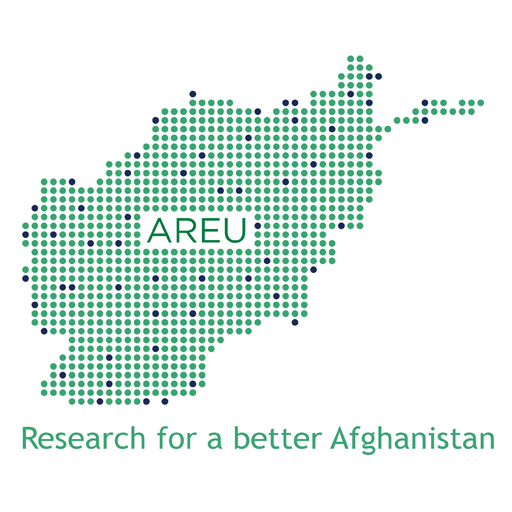
02 Jun Learning from COVID-19 disruptions to prepare for future crises
The outbreak of the coronavirus (COVID-19) took everyone by surprise and threw the world into an unprecedented lockdown. After rolling out its action plan and ensuring the safety of its staff, AREU took this global catastrophe to reflect on its working culture techniques and to explore alternatives.
One week before the government’s decision to put the provinces exposed to risk under lockdown, our office undertook appropriate measures to save lives. This action is reflective of our duty to avoid infecting others and to mitigate health risks. Despite the challenging situation for the staff, AREU had to adapt to this new way by working remotely and carrying on its research activities. So far utilizing digital tools has proven to be the best option to make use of the time and to avoid delays in our activities.
Personally for me, working from home was a first time experience, which not only proved to be effective but to some extent quite fun as well. During this time my colleagues and I had the chance to explore the food making factory (kitchen) and the world of botany (gardening). Colleagues began to share their cooking through our Whatsapp groups as well. What I found very joyful about this experience is that sometimes when I have to attend online meetings or finish my work early in the day, my parents tell me in a cheeky way: “today you returned very early from the office, I think there was no traffic†or when I wake up late, their reaction was like “You are late for office todayâ€. I found a way to make it work, by working at night as the house is quieter and when we have electricity, which gives me more spare time during the day to take part in housework.
However, confinement is not the same for all people in a society and not everyone can implement safety measures the same way as suggested by the Ministry of Public Health and the World Health Organization (WHO), some may suffer from a low job market especially families who rely on routine daily labor while many others struggle with the ongoing conflict between the government and the Taliban. Also, due to closed borders, food shortage in the markets has been adding to the ongoing inflation crisis in the country. For instance, according to the World Food Program’s market survey, food products’ prices increased by 15% from (14 March- 4 May). Nevertheless, the government, civil society and some individuals through charity activities have initiated donation or food distribution programs, which from the perspective of helping needy people with essential food is good but on the other hand, large gatherings in a confined place could significantly increase the risk of the COVID19 virus spreading.Â
Another challenging issue that cannot be unseen is raising public awareness about the virus. Since most of the provinces are not secure and the Taliban have increased their attacks, conducting awareness-raising activities is difficult. Additionally, lack of access to electricity and TV and in most rural areas even to radio has hugely limited such activities by the government and other organizations concerning the pandemic. Unfortunately, some youngsters, despite knowing the consequences of the virus, take the lockdown as an opportunity to visit friends and organize parties. In addition, the closure of schools and universities during the lockdown and the lack of access to internet, to computers and electricity, have resulted in most of the students staying home without continuing their studies as scheduled.Â
Despite all of the above issues, AREU researchers continue their work by contacting stakeholders and interviewing targeted people through phone or by other digital means for video calls for data gathering and virtual events. We are able to reach out to people for research purposes based on our existing networks. Our follow-ups and meetings continue with donors through digital communication systems such as Skype, BlueJeans, or Zoom. There are challenges linked to time zone differences, as well as connectivity issues and electricity hiccups (for the staff living in Afghanistan). Despite them, my colleagues are coping with the issues by yielding diligence, showing flexibility, and preserving the level of professionalism required to carry out their tasks. Although facing constant security issues and the health risks recently posed by the outbreak, we are still committed to continuing our work in order to keep promoting the culture of inquiry and learning as well as to deliver tasks as per the planned schedule.
Parallel to digital data collection, our research is focusing more on these parts of the research that do not always require direct contact with respondents or other stakeholders: literature reviews, developing tools, sharing our ideas through chats, calls and outlining the main points and sharing them through documents created in cloud-based file-sharing systems. This will allow us to be fully prepared for physical data collection once the situation has improved enough so that we can resume our activities again.Â
To sum up, the lockdown and working remotely provided us with an opportunity for which we were longing to reconnect with our family and friends and replenish our souls. The pandemic also made people realize the advantages of social media and modern technology and the best way of using this technology during hard times.
In the end, it is worth thanking AREU’s operations team for fulfilling staff’s needs during the remote work and providing updated information on the security and health crisis. However, even with all these steps taken, it has proven not to be easy to perform the job. I am hoping that all our efforts will pay off, as it will not only help to minimize the risk of Covid-19 and contribute to the safety of the nation but will also avoid interruption in research activities.

